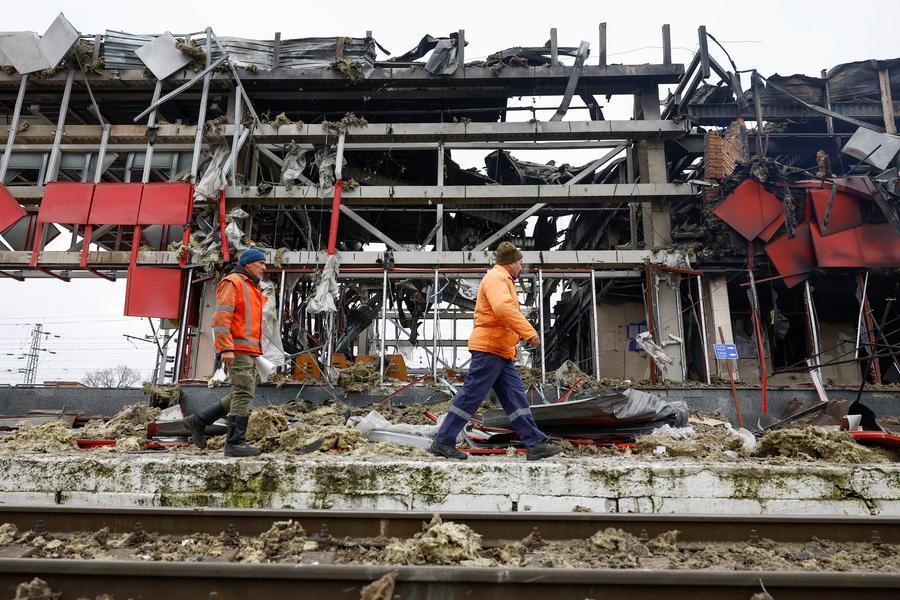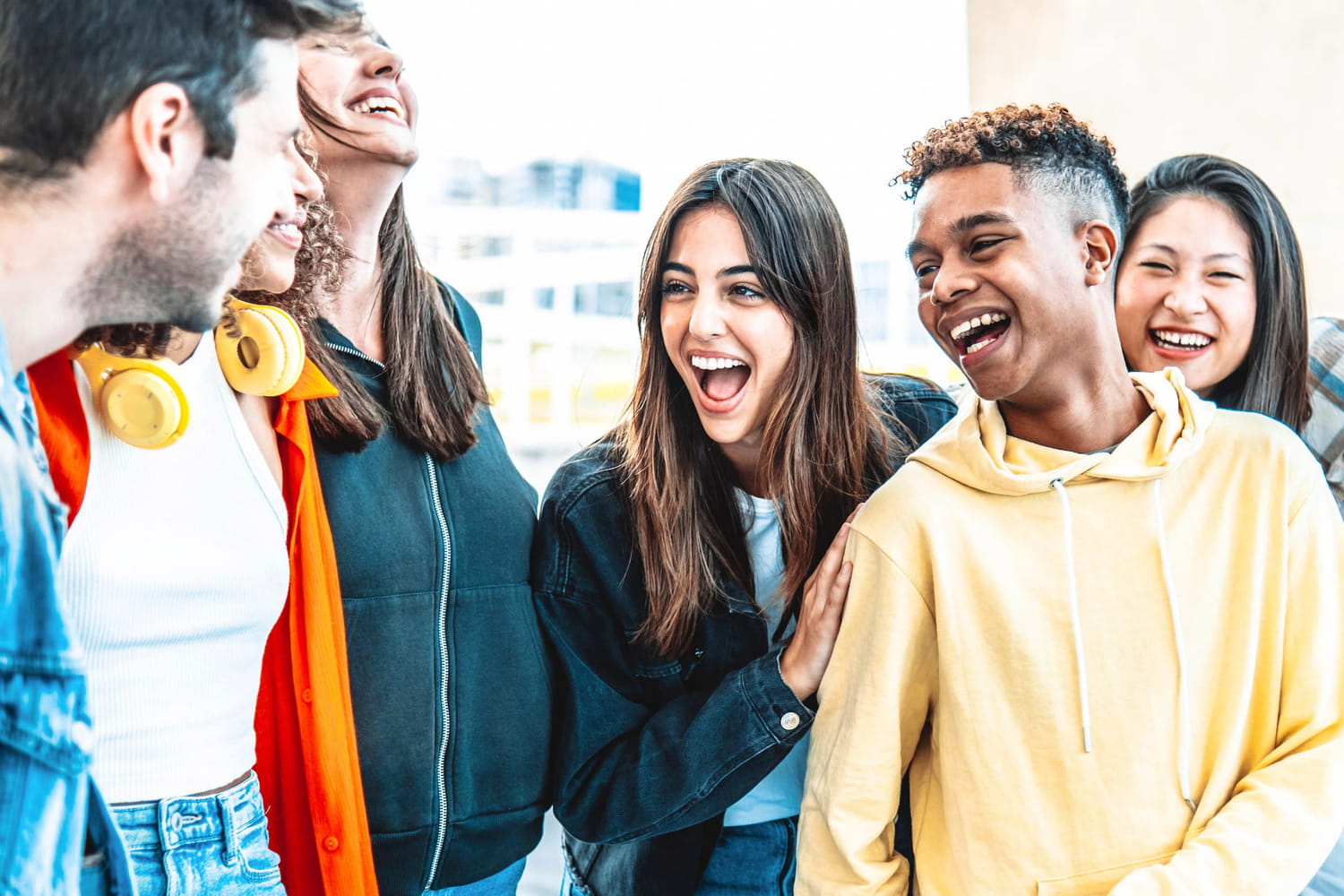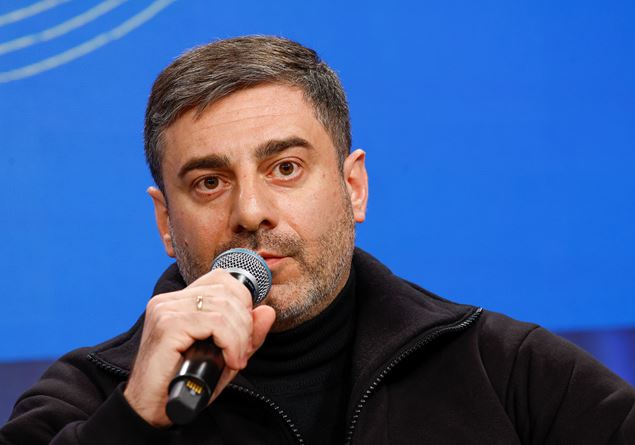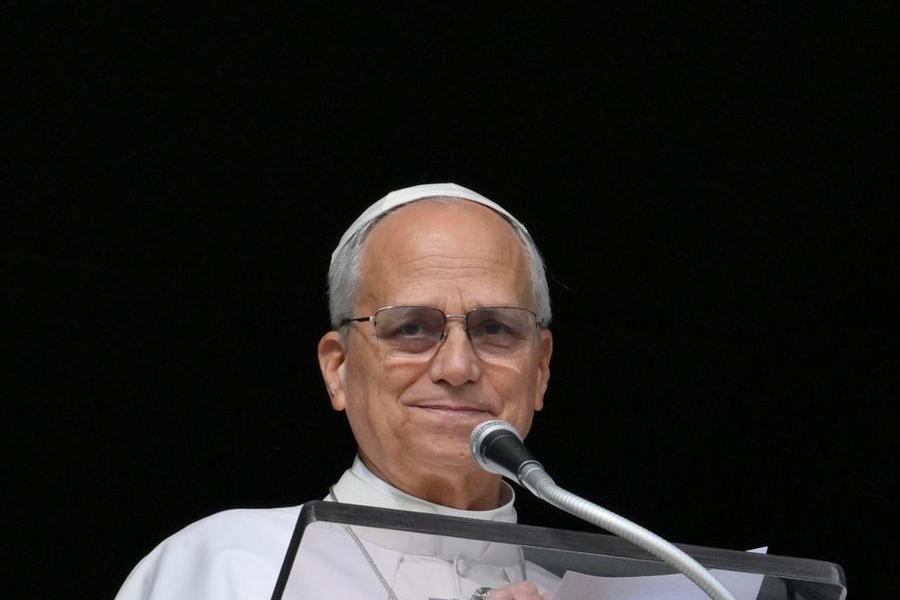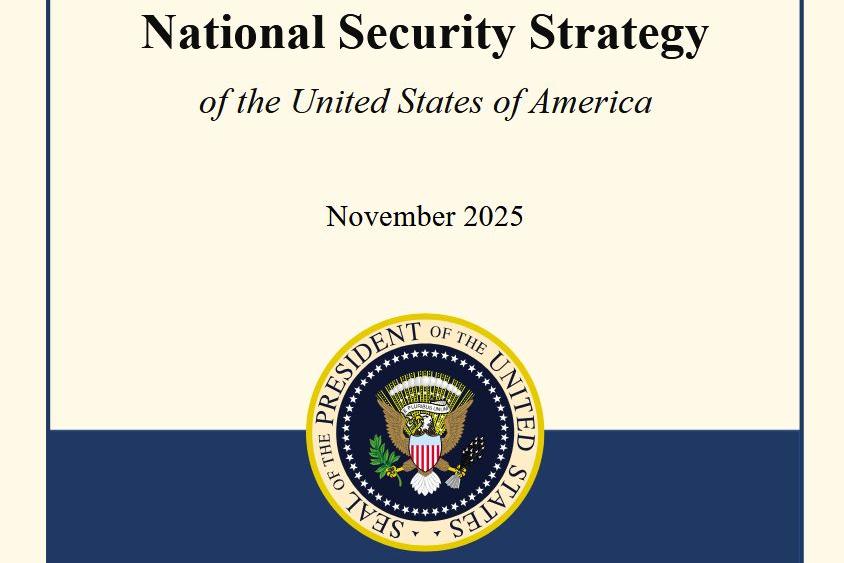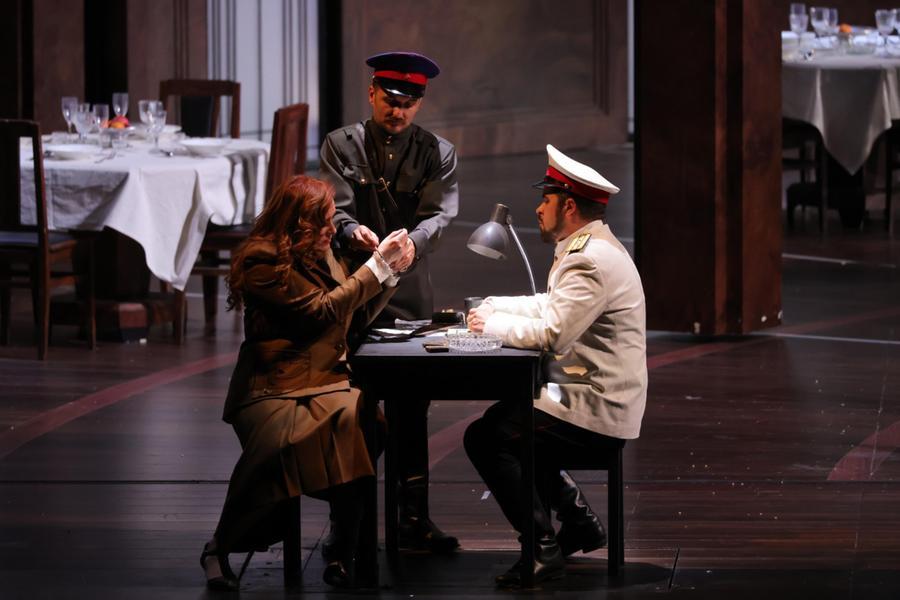Women and children evacuated from the front areas of Donetsk and Dnipropetrovsk (photo Ansa).
While tension and alert are growing in Europe over drone incursions in the skies of various countries, the severity of winter in Ukraine is now upon us and Moscow continues its war pressure on the country with massive attacks across the entire territory, which strike everywhere, energy infrastructures but also villages, urban centres, residential neighborhoods of cities, continuing to cause deaths and injuries. The prospect of a ceasefire remains distant, however in Ukraine we are looking at the challenges of the near future and the reconstruction of the country. «It is very important for Ukraine today to know that after the war we will not be left alone. Rebuilding our state is a commitment that requires not only re-establishing infrastructure but also rebuilding trust, society and the economy. And Europe plays a key role in this.” Talking is Dmytro Lubinetscommissioner for human rights of the Ukrainian Parliament since July 2022, in an interview given to Christian family (a part was published in issue 40 of the magazine), a few days after returning from one visit to the European Union Agency for Fundamental Rights in Vienna (Between). Regarding this mission Lubinets explains: «With the FRA we discussed how to strengthen our cooperation for protect fundamental rights, democracy and the rule of law in Europe. The areas of cooperation concern: non-discrimination, equal treatment, the protection of the rights of Ukrainians in EU countries, in particular women forced to leave the country due to war, and the protection of children’s rights in times of crisis.”
What are the priorities you will have to address to rebuild the country? Where should we start and with what resources, not just materials?
«We must start by supporting people, starting with the youngest, who are our future. We must care for those who have been most affected by the war. This includes the return of all Ukrainian citizens illegally detained by Russia, the return of deported or forcibly displaced children, and the release of prisoners of war. Furthermore, rehabilitation programs, psychological support and legal protection for war victims are essential. We need humanitarian and social programs: education, youth support, advanced rehabilitation centers for veterans. And then, the economy: investments, trade cooperation and exchange of technologies and skills will help Ukraine become a modern and resilient state. At the same time, the support of international tribunals and the compensation mechanism will ensure that justice is restored. Reconstruction must not come at the expense of democracy. The real victory is a society in which human rights and the dignity of every individual are the foundation of all decisions.”
Ukraine already today has almost one and a half million war veterans. This will be one of the big problems to face and manage. How?
«Since the beginning of the Russian aggression, the veteran community has continually expanded. The number of young veterans is growing and they first of all need access to adequate medical services and psychological support programs. Veterans need assistance in adapting to civilian life and resuming their participation in the socio-economic life of the country. To do all this in a concrete way, it is necessary to reform the approach to policies on veterans. Despite the war, changes have taken place in Ukraine, but the funds remain insufficient, legislation and infrastructure need to be improved.”
One of Kyiv’s main concerns is bringing home children kidnapped from temporarily occupied territories, deported to Russia, often given up for adoption to Russian families. What is known about these children, their fate, their conditions? And how can we ensure that they can go back?
«Moscow began deporting children as early as 2014. Since then it has continued this war crime, which is one of the elements of genocide committed by Russia against Ukraine. Today there are almost 20 thousand children kidnapped and deported. But the number could be even higher: more than 1.5 million children in the occupied territories are at risk. Russia itself speaks of 700 thousand children abducted. Many of the parents were killed, many others are civilians illegally detained. Our efforts are aimed at locating and identifying children, but this process is complicated by the fact that Russia has created an online catalog of Ukrainian children for the purpose of adoption, and during registration personal data is altered. We know that Moscow has created a precise deportation system: the occupation forces take children, relocate them within the occupied territories or deport them to Russia; create new Russian documents for them, changing names, dates and places of birth; they give them up for adoption to Russian families. In the occupied territories they undergo a process of education and instruction in the Russian language. This process is highly militarized, aiming for maximum indoctrination. Ukrainian children, both boys and girls, are forced to join Russian military organizations. I believe the aim is to use Ukrainian childhood as a resource for the new generation of the Russian armed forces. The occupation regime exerts various methods of influence on children and students, forcing them to participate in military activities and limiting any expression of Ukrainian identity. The involvement of other countries is crucial: today there is an international Coalition for the return of Ukrainian children which includes more than 40 countries. Italy is a member and I thank your country for its commitment. Qatar played a very significant role: thanks to Doha’s mediation, 83 children returned from the temporarily occupied territories and from Russia. At the Ombudsman’s office we created the Center for the Protection of Children’s Rights: one of its tasks is to document and record violations suffered due to hostilities and occupation. To date we have brought back more than 1,600 children. But it’s not enough, we need to do more: put more pressure on Moscow through tougher economic sanctions. We can’t fight alone, but we can all do it together. This is the only way to stop Russia and bring all our children home.”
The Holy See is also very committed in this sense.
«The support of the Vatican is very important: last July representatives of our office met with Archbishop Visvaldas Kulbokas, apostolic nuncio to Kyiv. The archbishop offered assistance in hosting families returning with children, including accommodation, meals and psychological and spiritual support, in a monastery in the Ivano-Frankivsk region.”
She comes from Volnovakha, a town in the Donetsk region that was razed to the ground by Russian forces. What do we know about the living conditions of those who, for various reasons, remained in the territories temporarily occupied by Moscow?
«The living conditions are extremely difficult. People have limited access to basic services, such as healthcare, social protection and property rights. Women, children and people with disabilities face even greater discrimination: risk of violence, forced labor, limitations on movement. Older people often have limited access to health services and social assistance. Furthermore, representatives of the occupying forces continue to organize ideological and “military-patriotic” activities with the aim of spreading negative feelings towards Ukraine in children and young people, eroding their Ukrainian identity and preparing them for military service in the Russian army.”
Has large-scale war exacerbated the problem of gender and domestic violence? Are women today even more at risk of abuse?
«Every war increases social vulnerability. Women, especially those forcibly displaced, those who have lost their jobs, or internally displaced, are much more at risk. The vast majority of victims of domestic violence are women. According to data from the National Social Service, more than 181 thousand reports of domestic violence were recorded in 2024, of which 140 thousand involved women. In the first half of 2025, out of 60 thousand reports received, 46 thousand concerned women. At the end of last year we developed the volume “Don’t stay silent” on preventing and responding to domestic violence. Our position is clear: no woman, and no individual, should face the problem of violence alone, even in the most difficult conditions of war.”
Do you think that the war has led Ukrainians to be more supportive and to develop forms of mutual aid?
«I am convinced that the large-scale war has made Ukrainians even more united and supportive of each other. Every day we see volunteers, local communities and ordinary citizens helping soldiers, assisting the wounded, supporting displaced people and helping families who have lost their homes and jobs. A great feeling of mutual respect emerged. The sense of unity has become part of our national identity. It is a cohesion that helps us endure the toughest tests and demonstrates to the world the strength of the Ukrainian people.”
(Reuters photo above: Dmytro Lubinets, 44, commissioner for human rights of the Ukrainian Parliament)

